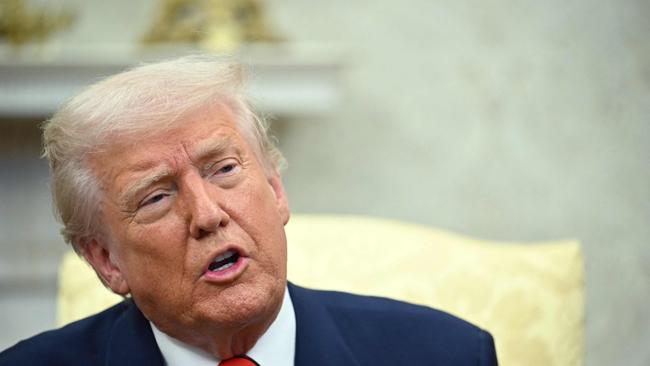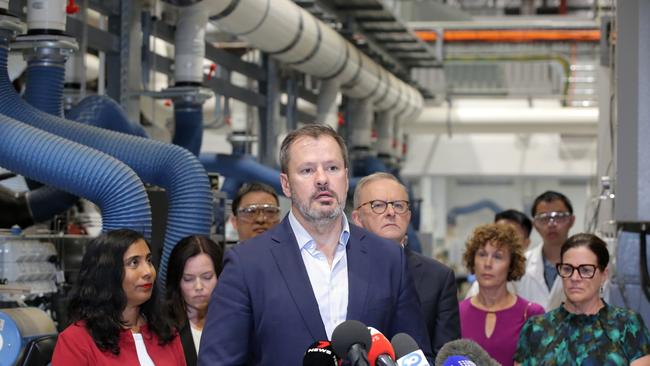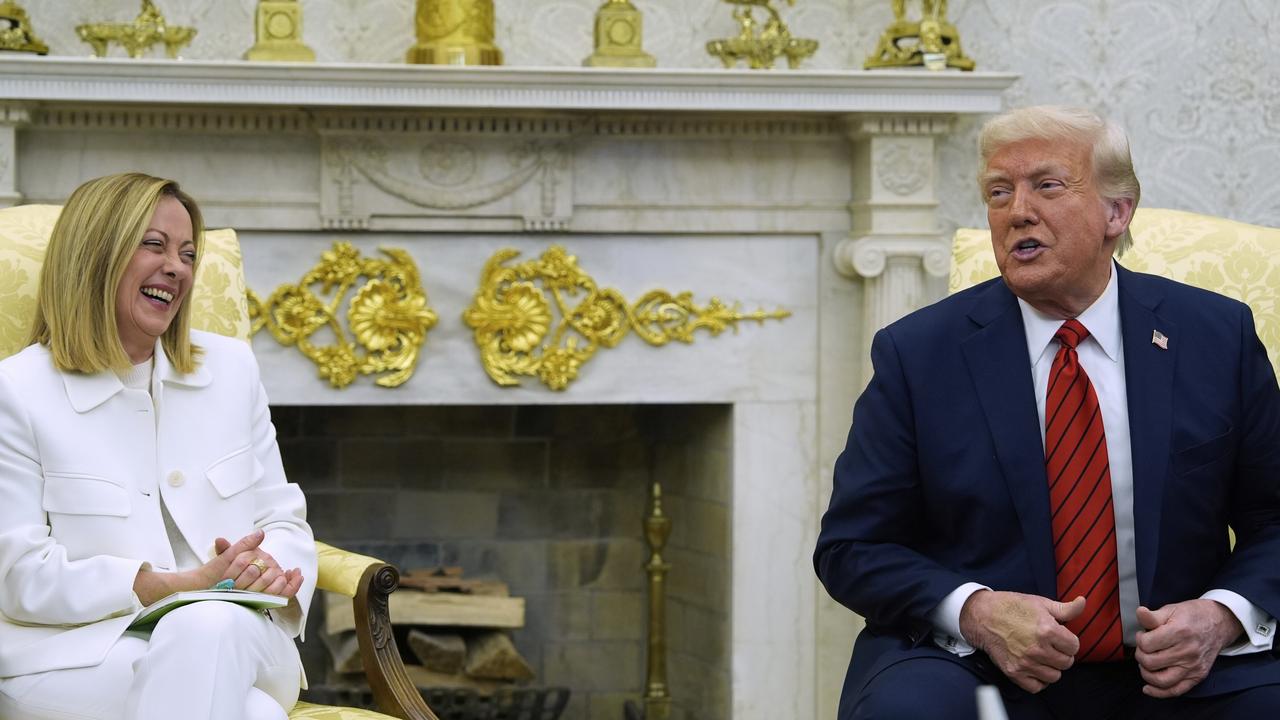
Its $2.4bn Whyalla rescue package means the government is effectively taking ownership of the mill and allied entities, including Infrabuild.
Infrabuild is trigger-happy when it comes to seeking anti-dumping protection so until, or if, a new owner is found, the government would be the one making the dumping complaint against steel imports.
It would also be the “independent” body to make a recommendation to government on whether import duties should be charged, which looks like the alleged victim becomes both judge and jury.
Dumping duties are already questionable because they simply protect the domestic manufacturer at the expense of downstream users, but the lure of fair trade looms large.
Already Industry Minister Ed Husic’s recently nominated Dumping Commissioner, David Latina, has drawn a line in the sand warning Chinese and other suppliers he will jump all over any dumped imports.
As noted this week, he has made the first preliminary affirmative determination (PAD) for three years and just the 11th in five years, charging 39 per cent duties on steel clips from China.
The clips are relatively small beer, used for clipping together plastic plumbing pipes, but the duties will increase prices under rarely used powers at least until a final decision is made in August.
Inevitably the duty will remain because the dice is already loaded against the importer and hence consumer.
Normally complaints are made, investigated, a preliminary determination is issued and commented on and then sent to the minister for a decision, after which any duties are levied.
As noted previously, an investigation effectively freezes trade but the PAD takes all this to finality ahead of time.

Trump aside, the key concern in the industry today is the doubling of imports over the past five years of prefabricated structures, meaning lost business for primary steel makers and fabricators.
Global steel is a small world so the US tariffs on Australian steel hits Bluescope’s exports to its US-based building products business while protecting its US North Star manufacturing operation.
BlueScope is an adviser to the administrator in the Whyalla clean-up, which puts it in pole position for possible investment.
As also noted previously, if you had a clean sheet of paper no one would build a steel mill or electric arc furnace now in Whyalla so its survival is a matter of government handouts.
Retailer Costco has had a long association with Butler, which BlueScope acquired 20 years ago. So when Costco wants to build warehouses in Australia, it imports fabricated structures from Butler’s Chinese comrades.
Bunnings has imported its fabricated structures from Vietnam; and Toowoomba-based builder McNab, one of Australia’s largest privately owned construction, development and property groups, imports from both China and Vietnam.
All of which explains why protectionism — either through President Trump’s tariffs or Husic’s dumping duties — helps no one, but the monopoly manufacturers seemingly end up in front.
Super shuffle
Next week the highly regarded Jacqui Ellis joins AustralianSuper as the effective replacement for retirement chief Shawn Blackmore.
On one level, Ellis, after successful terms at Aware Super and Mercer, is three ladders down the chain, reporting to retirement chief Shane Hancock who in return reports to chief member officer Rose Kerlin, who reports to the big boss Paul Schroder.
Blackmore left last October after 17 years in the fund and having failed to deliver on the promised new annuity-type product.
He was on the top management line so arguably AustralianSuper has downgraded retirement policy which is odd, given it is by definition what superannuation is all about — providing a comfortable retirement.

Then again members actually spending their retirement savings is not nearly as much fun for the fund as investing mandated income flows and expanded investment globally.
The other argument says Kerlin is in charge of member services, which means retirement strategies are her bread and butter and now considered on an elevated level at the $370bn behemoth.
Hancock says “work on our new longevity product has been delayed but it continues and we will make announcements on it in due course”.
Presumably that will be Ellis’s responsibility working with Tower on the annuity product.
Rival ART last year promoted its retirement chief Kathy Vincent to chief operating officer which underlines its commitment to the holy trinity of investment, product and advice on David Anderson’s team, with member service boss Simone Burnett and chief investment officer Ian Patrick, and on board with the likes of Brnic van Wyk (who helped design its landmark retirement product with Ben Hillier.)
ASIC is also keen for AustralianSuper to focus more on the member service side to actually deliver on promised services, but that is another issue.
Schroder is lobbying hard for a super account for life to lock in members for life and integrate super with the government pension and other retirement funds, giving his shop full access to all the data on wealth creation.
He is also striding the world on expansion opportunities, while some focus on his bread and butter helps.
Power plays
As electricity consumers absorb more bad news on pricing from the default market offer for power prices, APA’s Adam Watson may have some more bad news in store as he fights to get the Australian Energy Regulator to accept the need for regulation of his Bass Link asset.
Bass Link is the undersea cable between Tasmania and Victoria, serving as a supplier to both states depending on market need, for which he receives around $75m from Hydro Tasmania for his product.
Many company bosses spend their lives complaining about regulation but it has its benefits, starting with certainty for the given period, which is what Watson wants after his predecessor spent $773m buying the asset from the liquidators in 2022.
The previous owner, Keppel Infrastructure, was put into administration amid a fight with the government over a $105m compensation claim.

In a draft decision last year the AER said regulation could deliver $1.6bn in benefits to consumers in the 25 years to 2050 but said it was a lineball decision in part because the federal government is pushing the Marinus Link to provide a bigger transmission line.
The link is meant to be the engine supporting renewable energy, with Tasmania pumping hydro power to Victoria and receiving wind and solar power from Victoria.
The Victorian government is opposing the Bass Link bid for regulation because it gets the Tasmania Hydro power for nothing now and its consumers would to have to pay more under regulation.
The fact APA wants to terminate the Hydro deal this year is itself bad news for consumers because Watson figures he will make more money trading the electricity flows than the $75m he collects from Tas Hydro.
APA is likely to outsource the trading to one of the existing players like AGL or Origin, which means the underwater cable transmission would be subject to market conditions and the threat of shutting off supply between Tasmania and Victoria if conditions are right for the trader.
This doesn’t augur well for the claimed renewable benefits for the states.
Marinus, while bigger, is also subject to the vagaries of government construction as shown by the fact it is now estimated to cost $3.8bn for one cable, up from $3bn a year ago, and the planned dual cable is now deemed uneconomic.
Some might argue with some merit that one cable is also uneconomic.
If Marinus is the swing factor in whether to regulate Bass Link or not, then the answer is clear – better to give APA and consumers some certainty.




As Australia looks to shore up defences against an expected flood of steel imports in the wake of Donald Trump’s tariff extravaganza, the federal government faces a classic conflict of interest.